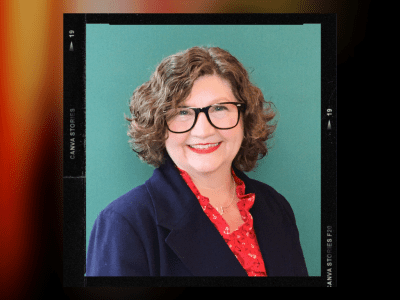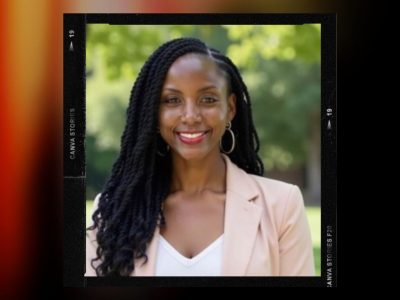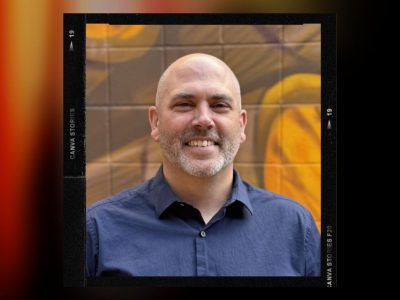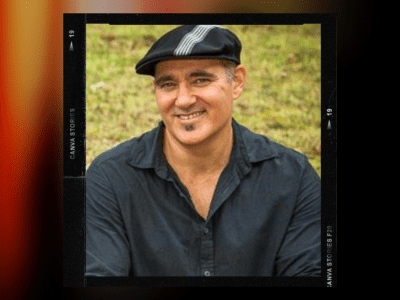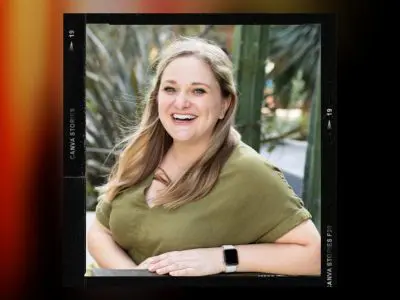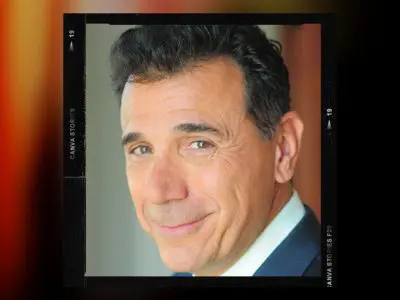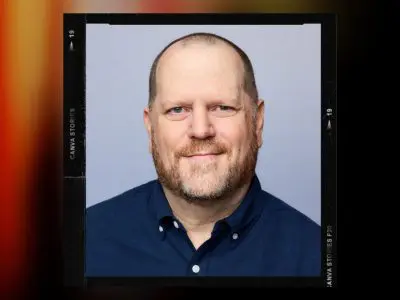Team MOJO: You Have It, Or You Don’t
w/ Diane Egbers
Use the buttons above to listen now.
Transcript - Team MOJO: You Have It, Or You Don’t
Rich: On this episode of team building saves the world.
Diane: Just know that we’re in this work because we believe in the capacity of leaders to develop.
Rich: This is the first time on a podcast I have heard somebody actually speaking positively from the management side As opposed to bad management is the cause of all woes
Diane: Yeah, send it, you know, and what I think is we’re all a work in progress, right?
Yes. Until I’m connected to somebody, I virtually have no chance to influence them as
a leader.
Rich: Hello, team. It’s me, your old friend, Rich Rinnonsland, hosting. of Team Building Saves the World, the show where I speak to thought leaders from around the world discussing variable strategies and tools to help you and your team build a better work environment. And today, we’re all about that mojo, baby, as we discuss Team Mojo with the founder and CEO of Leadership Excellence Incorporated, Diane Egberts.
But first, I do need to share some love with my supporters at Team Bonding. If your team is ready to experience teamwork through the power of play, then visit teambondings. com to learn more. Thank you. Bye. Now team, join me in welcoming my guest, leadership trainer, author of The Ascending Leader, and founder and board chair for the Cincinnati based Teen Suicide Prevention and Mental Health non profit, Grant Us Hope, Diane Egbers.
Diane!
Uh, that’s a small group of people I have just to cheer you. That’s their only job. How are you today?
Diane: I’m great. Thanks for having me. Thank you.
Rich: Thank you so much for coming on. So the way we like to start things around here, just so my team gets to know you a little bit better before we dive into the topic is just tell us a little bit about yourself, introduce yourself to them and tell us what brought you on the journey toward leadership development and executive coaching.
Sure.
Diane: Well, um, I have two passions, Rich. One is the passion for nurturing, developing leaders, and I’ll share that background and all of that with you in just a moment. Sure. The other in the last eight years is really a passion to help our youth, um, with suicide prevention and mental health. And so both of those things are, you know, kind of my life source at this point.
And so. I was in a senior leadership role, HR leadership for a number of companies, uh, and what I found is in the morning when I would get in, there would be people standing at my door waiting for me. And while I had the competency to really navigate every aspect of human resources and respect my colleagues now and partners that are in that role.
I found that I really got joy from the coaching and nurturing leaders component of the role. And so, developed very quickly in the companies that I was in, a following for the nurturing and coaching aspects of that. And really, my passion found me at my door, you know, at the beginning of the day, the end of the day.
And just what I love to do is to really help people find their mojo. You know, find their own sense of motivation, the optimist, the joy and, uh, you know, and their path to that intersection of purpose and passion that really gets you to outstanding perform.
Rich: Okay. So when we talk about Mojo though, and I mean, I’m going to be honest with you before I even heard about Mojo, you know, it was always followed by a yeah, baby for obvious reasons.
Um, what do you mean when you say Mojo, obviously the passion, the joy, but how does that then fit into a group dynamic for a team building?
Diane: Sure. So what we’ve learned is we’ve learned that with teams, we really need to nurture both relationships and results, want to have sustainable performance, people really have to be able to bring their whole authentic selves to the work.
And so then you focus on strengths and you focus on people’s geniuses, you know, as it relates to, um, the work. What we find is that people are more connected and when we have that connection that nurtures relationships and we understand what each of us uniquely contribute to productivity that nurtures results, we tend to have that magic that we call Mojo.
Rich: And can you share some, some, what you’ve experienced as a real world example? Like, uh, in your own company, how is it that Mojo looks, uh, when you develop a good team?
Diane: Sure. So when we think about Mojo, it looks like from, you know, vision and ideation to decision making, that people really can contribute ideas, have things respected, not have the outcomes be such a driver that it limits creativity, it limits innovation, it limits that person that would say, well, what if we did something differently, or
why do we do it? And so there’s an element of encouraging, but I said again, to encourage people to authentically bring their whole selves. Right? Well, there are people that naturally challenge the process and people that want to do something out of the box and different and creative. So it’s that idea about nurturing what each person brings the table and making that welcome in the work of the team.
Because, you know, we get and keep mojo by not only having people feel connected, but also having them feel valued for who they are and what they bring.
Rich: But how do we do that with, with disparate personalities? I mean, you have, you’re going to have a team of, you know, any number and you want to make sure they all feel nurtured, but everybody’s different.
So where, where can we make sure that we are. Inspiring everyone to take those risks, to take those chances, but still maintaining the team synergy.
Diane: And so that’s part of the fun. Like when we were put up portfolio together of strength, style, genius, you know, all the things that they can learn about themselves first, you know, that deep kind of self understanding.
And then the things that they could really learn about each other. And once I understand you better. That familiarity, comfort and connection that’s possible. And so, you know, we tend to not have discord with people that we really feel like we know well, that we socialize with, that we, you know, have a bond and connection with.
And so you know, what we want to do is help people to see that it takes all types of people, you know, to, to get optimal results. And, you know, we have kind of 1 way of looking at the world based on our strengths, style and genius. And there are lots of other ways to look at it and we embrace that and welcome that we tend to have.
Really interesting and fun team dynamic to show off.
Rich: Have you ever had an experience where you’ve seen that it’s not working? Where there are just some disparate personalities that are far too extreme in one direction or the other? And how do you try to get them past there?
Diane: Well, Rich, that’s really at the heart of our work.
So the nature of our work is we’re called in when something’s not working. I think the team’s not getting to optimal outcomes and performance or the team is not connected. There’s a lot of conflict, discord. And so our job is to help them either find. Or recover their mojo, right? Okay. On a very best moment for me is when I’m sitting in a CEO’s office and the CEO will say, Oh my gosh, we have such momentum, like amazing.
And you know, and so, you know, it’s that. Multi level tandem mojo work. So it’s between often the executive team, the senior leadership between that team and the manager team and in any organization where not only is mojo important to the exact team, but it’s important to how these teams. React and do work together as well.
And so those are things that, you know, we’re looking, you know, to cultivate, but often it’s not intuitive. It’s not easy to get there on your own.
Rich: Right. Because I mean, goodness knows, I’ve seen it plenty of times in the facilitation world where you have people, you put them on a team and they’re not used to working together.
They may not have even met before that day. But you give them a common skill and, or, or a common thing that they have to work. And you see that blending start to happen because the first half of any experience we have is how do, how do your strengths compliment my strengths? So is this something you need the leader to take care of, or is this something that individuals and a team can do as well?
Diane: Well, we need from leaders since we need leaders to understand that it requires an investment in the team. You know, that you can’t just keep pushing for results and think that relationships will manage and cultivate on their own, right? And so we want leaders, especially now that the piece of change is picked up now back to a level, particularly rivaling where we were prior to it’s that there’s been so much attention on, you know, gosh, who’s returning to work and what we’re doing that, you know, it’s.
Organizations are really wanting to recover this, this level of productivity and get into this new space of Mojo. But along with that comes attention to the team and investment in the team. So what we want leaders to really think about is, you know. Am I investing in my team for the long run, you know, to get sustainable mojo over time, it requires an investment and, you know, and so that look like a lot of different things, but sometimes it looks like the help of experts and other times you might have that internal that can help you.
And then as it relates, the team is understanding that it takes emotional energy. So understanding that above the, the operational day to day and the crisis of the day and the planning for next year and all of the many a sundry things we’re asking for us to do, that it really requires people to commit to the emotional investment.
It takes to rise up above that enough. To really focus on their development and then to continue to value and nurture those relationships over time. Making sense?
Rich: Yeah. Yeah. Um, very much so. Uh, but from a leadership point of view, how can a leader, a manager maintain that overview where they can make sure that everybody’s, you know, mojoing together as it were, but also keep them as part of it.
It’s gotta be a bit of a balancing act, isn’t it?
Diane: It absolutely is. And so when we think about, you know, one of the things we nurture and the development we do, we do very in depth development with leadership teams at all levels. And one of the things we nurture is the difference between strategic and operational work.
Operational work is very much about, you know, getting project and goals over the, over the finish line. Lots of management operational strategic work is really about understanding what you need to value for sustainability over time. So, sometimes that planning for annual goals, sometimes it’s making the investment to look at, you know, competitive market data because you’re gonna have to reposition some things with your company and other times it’s making the long term investment in your challenge.
And we know every business will tell you right now it’s a talent economy. And so investing in your talent is more important than ever before and that’s a strategic choice. And so it requires them that ability to work in dimension. You know that to get the operational stuff done, but to also on a daily basis, say, gosh.
How strategically can I contribute to the team? Sometimes it’s coaching, sometimes it’s nurturing, sometimes it’s recognizing, sometimes it’s developing the team.
Rich: Right. And even while you’re doing that, teams are going to change. The dynamics are going to change on a daily basis, if not even more so. So you’ve got to keep the ball rolling as it were, it must be difficult.
I mean, it must be really tougher managers out there. And this is the first time on a podcast. I have heard somebody actually speaking positively from the management side, as opposed to bad management is the cause of all woes.
Diane: Yeah. And you know, and what I think is we’re all a work in progress, right? And so we come alongside leaders, meet them wherever they are.
And we believe inherently in everybody’s opportunity to develop as a leader, because often it’s, I’m not aware of, you know, what that mindset of a leader is. And once I grab hold of it and understand it, right, right miraculous things happen and we believe in, you know, once I understand what that gap is, you know, our inclination is to move toward it and to close that gap.
And so. Yeah. So just know that we’re in this work because we believe in the capacity of leaders to develop.
Rich: Fantastic. Diane, I’m loving this and I want to dig into more of the how, but I need to step away for just a brief second, if you don’t mind, because I need to tell all my team out there about a company.
I am very proud to be a part of. Team bonding was founded over 20 years ago with one simple question. How can employees have a great time while fostering strong, authentic bonds between people who work together? No matter where your company is located, team bonding offers powerful, engaging, custom team building events designed to get the best out of your team anywhere in the world.
They’ve created a catalog of innovative events using the power of play as a learning tool and tapping into the correlation of work and play. So whether it’s scavenger hunts or Jeopardy or so much more, the team bonding of activities, be it live, virtual or hybrid, maximizes the impact of team building with an accent on fun.
So visit teambonding. com to schedule your event. Now team bonding when you want seriously fun results. And we are back talking about team mojo building with Diane Egbers diane, how important is something like team building when it comes to keeping the mojo of an organization going?
Diane: You know, it’s at the heart of the culture that organizations are trying to create, you know, and so if we want to innovate and want to sustain a positive culture for talent over time, you know, the mojo component of it becomes really very important.
And, you know, you think about what causes teams to lose their mojo. Well, it can be two or three team members changing, and, you know, there’s a shift in the culture that a team needs to account for. Sometimes there’s a dramatic change change in the external shift of business in the marketplace and an organization team needs to pivot, you know, quickly.
And so that can, that can affect mojo, but most often it’s the inattention, the team mojo that is the biggest risk. Okay. Go along and we’re so buried in what we need to deliver on that we’re not thinking about nurturing the team. And it’s very much individually when we start new roles and we’re under stress, what we do with our own wellbeing, you know, um, that if we all really focused on our longevity, we would make a lot different choices on a daily basis around, you know, our health habits.
If we really believed that we’re going to care about how I feel everything I’m 85, right? The things we’re thinking about is mojo is like team well being.
Rich: Right. Are we starting at the management level and working our way down? Is it, is it important to do that? Or do the management bring you in and just say, here’s my people fix them so I can get what I need out of them.
And then you have to convince them that they have to come along for the ride too.
Diane: Yeah, we are big fans of multi level development and as simultaneous as possible, you know, what we used to do in 18 to 24 months. We now do in 9 to 12 and that’s the nature of our world. And so it’s intensive development, but it’s also intensive multi level development.
So that. Exact teams really understand with intention the impact they’re having on the next level in the
organization and that feedback learning. And then the momentum that creates as people feel listened to, they have a voice, they feel value, all of those things that contribute to the energy that is needed for Mojave and the optimism that is at the heart of Mojave. Nice.
Rich: But let’s get into, if I can, a little bit more specifics.
I don’t want you to give away the whole store. I mean, we, I want people to hear this and go, we need to call this woman and her company and get our, get our things together, get our ducks in a row as it were. But what are some starters? First of like, how would anybody even recognize that their team’s mojo is all over the place?
Or just
Diane: the way that you recognize that one, of course, is you’re not retaining as many leaders as you want to be in our current marketplace. If you’re not retaining your high potential and your solid performers, good reason for you to step back and say, wow, strategically. We need to do something to cultivate the sense of connection, belonging, being valued and mojo of this team so that people aren’t voting with their feet.
So that’s one one is just inattention to results. So while we have great ambition at the end of the year, we end up somewhere south of 80 percent of our results that’s happening, then mojo is a critical part of that because. In the environment we’re in, with things changing so rapidly, he could have just burned out.
And so then, for that group, it’s really about rejuvenating the team. Recovering your mojo. And there are lots of things, specifically in organizations, that cause that. In attention to, you know, that that vital sweet spot between nurturing relationships and focusing on results. There’s Mojo and. You know, it’s really assessing, are we not getting that the results and or the relationships that give us that?
And the 3rd 1 is just. A significant amount of conflict, you know, just. When teams are really experiencing conflict, it’s a great opportunity to step back and think about investing in how we relate to one another to then galvanize our, um, propensity to get results together and, and better results.
Rich: There’s got to be some sort of, uh, like emotional maturity involved in, in even recognizing all of this, except for, of course, when the bottom line is not attaining what you’re reaching, what you want it to be.
But that’s got to be the hardest thing to teach, right? I mean, in order to get your team’s mojo up, you have to be able to give them the emotional freedom to take those chances, to take the risks, to be daring enough to have the ideas and work together to strive for them. How do you teach that?
Diane: Well, you know, it again is a journey.
So our approach is obviously to go in and do an assessment. And what we’re looking for in those interviews is really, where is this team on the continuum of self awareness and emotional intelligence, awareness and culture development, and then cultural awareness and cultural intelligence. Okay. Looking at all of those things with executive teams and leadership teams, because emotional intelligence is the foundation.
Social intelligence really helps, um, leadership teams to understand their role in really leading and developing the culture. And then cultural intelligence is really creating that inclusive environment where everyone feels welcome and connected. And so to me, those are layers of development and wherever they are, they may have done a good amount of work and emotional intelligence.
So, then we start with social, they may have done emotional and social. So, then we start with cultural intelligence. And so, as we kind of layer on the, the elements of self awareness and and emotional, social and cultural intelligence, we really meet a team wherever they are. But we always say. The greatest journey is the journey with them and leaders know that I hate that.
Oh, my gosh, I’m so much more self aware and vulnerable and authentic, you know, at 50 than I was at 40.
Rich: So just giving them the freedom to make mistakes, is that enough of it? Is that, is that a good starting point?
Diane: Yes. And I think that, um, helping them as a culture. To not punish mistakes and to see mistakes as part of learning and, and to embrace some of those value based mindsets.
And we always are working with executive leadership teams to really identify what are the values that have gotten here? And what are we going to need to value more to succeed in this new environment? And so that, you know, you’re getting to the whole values conversation. Yeah, yeah. The values are really the pillars that your culture sits on.
And so, you know, so part of that is, um, you know, understanding that about a team, you know, have we revisit our values, have we determined what they are and we articulate the ones that will take us forward into a sustainable environment, um, or mojo and performance.
Rich: What about pitfalls? Because goodness knows you’re trying something new.
And something goes wrong, the knee jerk reaction would just be to, okay, let’s give this up and go back to what we know works, even if it wasn’t completely working. So, what should
we, yeah, and what should we look for? What are some of the, some of the more common ones you’ve seen? So that everybody out there can go, Oh, this apparently happens to everybody.
Diane: Yeah. So our preference around that rich is to work with a team, but also to work one to one in coaching. You know, and it’s often one to one where somebody feels vulnerable enough to say, I’m not getting this, like this is not making sense to me, or I hear what you’re saying, but I just don’t see it. I don’t see it amongst the team.
And so often. It’s that opportunity to be vulnerable 1 to 1 that really helps us to be sure that every individual is developing at the team that at the pace that the team is, you know, because if we’re not able to 1 to 1, we really don’t know what they’re understanding and, you know, and where they are.
Yeah, if you’re able to have people really see that you’re in their corner and you’re supporting their growth. They’ll say, wow. I just felt stupid, like, I don’t, I don’t even see why this is a problem. And then we talk about and, you know, and to ask a lot of questions and, and help to promote awareness and understanding.
So then we can keep moving at the pace, you know, the team really needs to develop.
Rich: Do we find any of those pitfalls, uh, centering around cultural diversity? Plus, we’ve got the five generations in the workplace. I mean, it could be hard for these people to communicate sometimes.
Diane: It absolutely is. And so we have cultural and generational components in everything we do.
Okay, good. Love to hear the data. And they love to talk about it. Oh, this whole your cultural values aren’t going to play very well with Gen Z. And they’re like, why is that? And so, yes, we are generational experts, but we also. Love to foster the openness of that conversation, because there is something amazing.
There is a superpower in every generation. So what we try to get them to do is to work past all the judgments. Okay. And to really see what each generation brings to the table. So, yeah. So, really great, uh, fun work, uh, that that offers.
Rich: So, your book, uh, The Ascending Leader, are things about Mojo mentioned in the book as well?
Like, if anybody wants to go pick it up? To get in further detail than, unfortunately, we can fit in a 30 minute podcast.
Diane: I would say that was developed well before this concept. Oh, okay. Website is something brand new I’ve written on Mojo that would probably be more effective. Okay. So, we’ll share that, you know, before we conclude.
But I would say the, the, um, essence of the work on onboarding is really to encourage leaders to focus on relationships first, you know, and to say, um, I need to evaluate how connected I am because until I’m connected to somebody, I virtually have no chance to influence them as a leader. And so we help leaders to really identify.
Where do I have the greatest connection and how can I leverage that and where am I not connected, therefore, not having very much influence currently, because people choose who they follow. Sure. And one of the things that, you know, we help leaders with, whether they’re onboarding and building all new relationships, or whether they’re in the business and maybe just haven’t attended.
To certain relationships that, you know, we encourage them to start there.
Rich: Let’s talk if we can, in the time we have left, about, uh, Grant Us Hope. Uh, I mean, this seems to be so far afield from the corporate team building world, you know, in the leadership excellence world that you’re a part of. What brought you into Grant Us Hope?
And please feel free to tell my team out there more about it.
Diane: Of course. So, um, very quickly, I’ll share. We have our, um, annual Gala Butterfly Bash coming up on October 26th
at the first week before that. The event is open to the public. So, uh, it is a celebration of our journey. And so, I lost my son, Grant, um, to suicide in, um, February of 2015.
Rich: I’m so sorry.
Diane: And I was in Cincinnati, and it was a year after that where I was really searching for, you know, what could we bring to Ohio?
That had a track record and hope squad, the national organization of 15 year track record in preventing suicide and educating around mental health. And what we really wanted to do is to break down the stigma. So that’s so many things that contributed to our son’s struggle wouldn’t affect other things.
And it’s just an extraordinary peer to peer program in our high schools and junior highs for hope slide. And grant us hope provides that in the state of Ohio, Indiana and Kentucky is part of a national program. And so what I’m the chair of that board, and we have a very talented leader and and organization providing that in our schools now, do I coach and nurture leaders in that capacity as well?
Yeah, and have I learned an incredible amount? And do I have just. Endless respect for what it takes to be a nonprofit in our community to raise funds while you’re doing your work, right? You know, incredible skill sets that tape. And so, um, yeah, so there are definitely some synergies, but that’s a light.
Rich: Yeah, I was gonna say, uh, what methodologies do you see dovetailing between the two communities? I mean, you’re talking about the corporate world and the C suites and kids in high school.
Diane: Well, let’s take it even more fundamental than that. I mean, we literally in our culture Are breaking down the stigma against mental health, you know, and for kids, because they’re so accepting this generation, the gen Z generation are leading the way they’re leading us all forward because there’s such an accepting generation.
And so similar to breaking down the stigma that exists against mental health. It’s like what we’re challenged with as leaders, our mindsets guide what we do every day. And if we can break the stigma around, you know, the things that work against leadership and against Team Mojo, it’s very similar because it’s about changing the culture.
And so when we really promote Team Mojo and developing teams around that, it’s really changing the culture of teams. What we’re doing with Grant Us Hope and with Hope Squads is changing the culture within our schools. You know, unconditional love between our students, you know, that it doesn’t matter if you’re in this group or that group, or if you’re a freshman or a senior, if you’re struggling, I’m going to reach out to you and help you nice because we’re human first.
And what I’d say to leaders is we’re people first and people first get nurtured by the connection being valued and building relationships, and then we can influence them. And so, you know, a lot of the work we do, as you can imagine, with post grad students is develop their leadership skills. Yeah. Um, and so, yeah, I could go on about synergies all day long.
No, I hear ya. Yeah, and so there are absolute synergies and what we’re doing in our schools and, and what we’re doing in our businesses.
Rich: I try to explain this to people when I’m working in the, my 15 years of experience being a team building facilitator. The reason we use the power of play is because that child still exists within all of us.
Who as much fun as we might find the work day, making games out of everything. Just gamifying your own personal existence gives you joy.
Diane: Absolutely. And we need more of that, you know? So I earlier this week was at the queen concert in Detroit. Nice. And part of experiencing that joy is that feeling of community that we have with all other human beings at a concert.
And I was just standing there thinking for a moment, didn’t take a whole lot of time being at work. What if we could do this in our organizations? What if we have that joyful sense of work?
Because we’re capable of it. We do it at football games. We do it at concerts. We do it at all of these things we enjoy. And I say, let’s bring that joy to work. Right on. And so I know that you share that.
Rich: That’s very, very much so. Yeah. Last question, just on this corporate side of it anyway, is there anything you can say to the, you know, the leaders out there who are still questioning these techniques who, um, that, that might inspire them just that little bit more to reach out to you or to reach out to somebody else who will help them.
Get that team back together and working together.
Diane: Well, you know, I’d say it the same way that, you know, we started is it is not intuitive, right? You know, we have 25 years of expertise in this work, um, and deep understanding of what it takes. Just like we respect our health care clients that, you know, need major health care centers.
And a lot of them are physicians by background. They have deep expertise. It’s not intuitive for me, as do our business leaders. And so 1 of the things to embrace is. This isn’t something that leaders should just know, you know, because there’s tremendous research and practice and understanding that goes behind it.
And so what I want to encourage leaders to do is the most effective leaders surround themselves with experts in the areas that help them to progress. And we say, Hey, you know. Everybody needs to really understand what intuitively, you know, we, where we’ve gotten to intuitively, and if we’re stuck, you know, who, what are the resources we can bring around that?
And, you know, whether it’s the gaming that you provide, that is those moments of joy and the, those things for a process. That’s systematic that helps your team to get to sustainable, high relationships, results, and performance, then, you know, that’s the kind of work, you know, that we’re engaged in.
Rich: Plus, if anything, it helps you with retention.
And we know that’s got to be one of the number one problems in the marketplace right now. Trying to keep those people in their seats, working for you
Diane: and having your talented people see and be able to really chart their career within your organization.
Rich: Beautiful. Diane, thank you so very much for coming on and talking about this.
I, I had a great time. Did you have fun?
Diane: I did rich and I’m looking forward to learning more about some of the things that you facilitate opportunities for us.
Rich: Well, I would love to get into all of that, but unfortunately it’s time now for a speed round. Okay.
So as I started to tell you before we came on the air, Diane, uh, basically what this is is a quick game, 60 seconds of like, I’m going to have some music playing in the background. That just keeps me in touch with how much time I have left during that time. I’m going to ask you a very quick series of questions that are just silly and off the cuff.
Your objective is try to answer them as fast as you can. So if you, if you’re feeling competitive at all, we’re trying to match or beat 15. A lot of questions in 60 seconds. So let us, as soon as you hear the music, we can begin. And what’s your name? How many kids do you have?
Diane: I have two.
Rich: Which one’s your favorite?
Diane: Oh, neither.
Rich: Do you have any pets?
Diane: Uh, yes.
Rich: If you could ask your pet a question and get an answer, what would that question be?
Diane: Um, what brings you joy?
Rich: What is your favorite ice cream?
If you could live in any television home, which home would you choose?
Would you like to live in the past, the present, or the future most? Okay, what is your most embarrassing childhood memory?
Diane: Oh, gosh, um, oh, probably the Halloween costume.
Rich: Nice. What’s one thing you remember from kindergarten?
Diane: Oh, how much I love my teacher.
Rich: Excellent. 11, Diane. 11. That’s really good.
Oh, Diane, before we wrap up though, uh, cause I want to thank you so much again for coming on. But, um, can you tell my team out there how they can learn more about you? Maybe where they can find your book and more importantly, where they can find more about, uh, your organization.
Diane: Yes. So, um, contacting us at Leadership Acceleration is, um, simply, um, typing in lei consulting.
com and we have a team here every week who would be happy to in person answer any of your questions and forge a connection. We are very inspired by your success. And, uh, wishing you well.
Rich: And, uh, what about Grantus Hope? Is that just grantushope. org?
Diane: So, Grantus Hope is grantushope. org. And right now, as I said, our Butterfly Bash is, uh, October 26th.
And we would love to see you there.
Rich: Fantastic. Diane, thank you so much. My team, please, one more time, a big round of applause for Diane Egbers.
And as for the rest of you, my wonderful team, that’s it! We’re wrapping up yet another episode of team building saves the world. You’ve enjoyed this episode, whether you’re new to the podcast or an old fan of the show, please be sure to share with everyone that you know, whether they’re a coworker, friend, or family member, it just helps us to share all this vital information.
You can find out all about us, including all past episodes at team bonding. com. You can also find us wherever you find your favorite podcasts. Google Podcasts, Apple Podcasts, Spotify. Wherever you go to listen, my friends, we will be there. And don’t forget to look for all of us on the social medias at Team Bond Podcasts.
Leave us a message while you’re there. Tell me what you liked about the show. What you didn’t like about the show. What do you want to hear about in a future episode? It’s how you become a valued member of my team. So, before we say our final farewells for this episode of Team Building Saves the World, please never forget, you are within the sound of my voice, you’re on my team now, and I am forever going to be on yours.
So long, team!
I’ll see you next time.
It’s been said that you learn more about a person
in an hour of play than in a year of conversation. So why not put your co workers to play with the help of the team at Team Bonding? Team Bonding was founded over 20 years ago with one simple question. How can employees have a great time while fostering strong, authentic
bonds between people who work together?
Their catalog
Diane: of innovative events include scavenger hunts, Jeopardy, and much more. Each activity, whether live, virtual, or hybrid, Maximizes the impact of team building with an accent on fun. Visit team bonding.com to schedule your event now. Team bonding
Rich: when you want. Seriously, fun results.
October 24, 2023
In this episode of Team Building Saves the World, we delve into the concept of Team MOJO with Diane Egbers—how to cultivate it and sustain the vital synergy that leads to exceptional productivity and performance in organizations. We explore the key ingredients for building Team MOJO, the role of emotional intelligence, strategies for adapting to changing team dynamics, and its connection to mental health and inclusion in the workplace. Be sure to listen to gain insights and practical advice from Diane in improving team synergy, leadership development, and executive coaching.
About Diane Egbers:
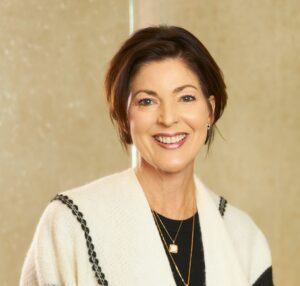
Diane is a respected thought-leader on a variety of topics related to executive coaching, leadership development, emotional intelligence, developing high potential teams, facilitating growth, talent acquisition and retention, organizational effectiveness, leadership team transitions, creating high-performing cultures, elevating women in leadership, cultural intelligence and inclusion, mental health in the workplace and more.
As founder and CEO of Leadership Excelleration, Inc., Diane has coached C-suite leaders in businesses ranging from Fortune 500 companies to major healthcare systems for 20+ years. She inspires learning through a transformative nurturing style, guiding top leadership talent to achieve optimal results over time. She is the published author of the book, The Ascending Leader, and is also the founder and board chair of a Cincinnati, Ohio-based teen suicide prevention and mental health focused non-profit called Grant Us Hope.
Visit our blog to learn more about improving team synergy & team MOJO!
" What we want to do is help people to see that it takes all types of people, you know, to get optimal results. And, you know, we have kind of 1 way of looking at the world based on our strengths, style, and genius. But there are lots of other ways to look at it and we embrace that and welcome that."- Diane Egbers
Get more human resources and leadership advice.
Less drama? Greater teamwork and job satisfaction? TeamBonding is here to help you build a stronger and happier team. Subscribe to get our team building podcast and thought leadership blogs sent straight to your inbox.







